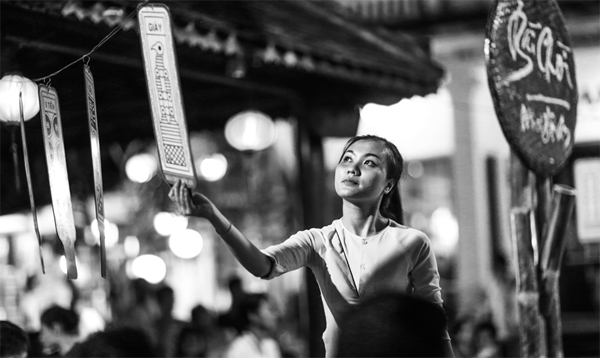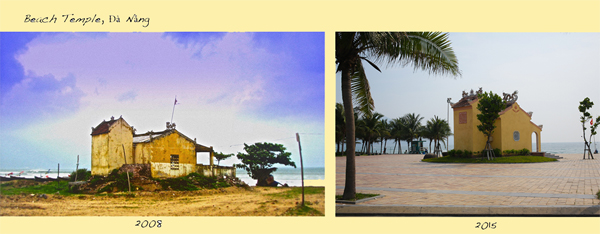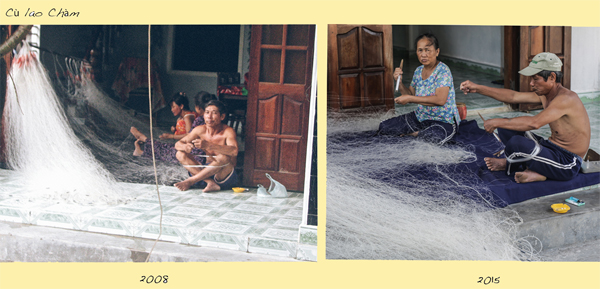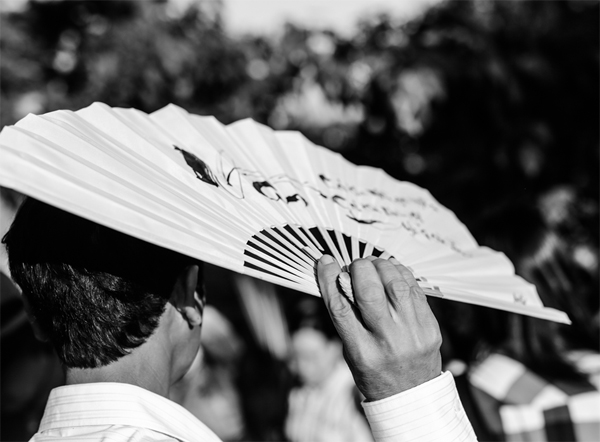Nostalgia, Việt Nam
By Aaron Anfinson

I get nostalgic about Vietnam. This could certainly be because it was the first move abroad for both my spouse and I. In contrast to a current scheduled existence of looming deadlines and responsibility, we dropped everything and spent our meagre life savings on two one-way tickets to as-far-away-as-we-could-imagine. Though, admittedly, I’ve always been intrigued by the region. I grew up listening to stories from veterans that just hadn’t gotten over the war. For them it became a daily reference, a temporal self-positioning just a little bit further away from hell. For me, having had just finished a contract in America’s volunteer army, I felt disenfranchised by the more current, on-going ‘fog of war’. Apparently, though, the wires were crossed and I, like many I’ve known before me, was on a plane to Saigon—but this was a different Vietnam.
In this Vietnam, not only could you mention the war and get away with it, but people had somehow managed the unthinkable: they had forgiven and nearly forgotten the most extreme bombing campaign in human history. Moving to a different rhythm set to the music of beeping scooters and excited chatter from school kids piled two-to-three on a bicycle, ‘my’ Vietnam was a forward-looking celebration brought on by the majority of the population matching the age demographic of an average university campus. ‘What war? The war in Iraq and Afghanistan? That is just American history repeating itself,’ my students would say.
Recently, I revisited Vietnam. Seven years after I first landed, I tried to find our old flat and couldn’t. It was lost where familiar murals of socialist propaganda met strange boulevards and whole new city blocks. For the first time, my nostalgia stayed with me while I was in Vietnam. ’My’ Vietnam seemed lost forever. The following two sets of images represent this change.

In the first set, an oversaturated and admittedly romanticised temple along My Khe beach has been rebuilt and landscaped (‘paradise’ neatly paved). In 2008, I remember mornings punctuated by the whole community helping haul in fishing nets. Today, the nets separate swimming areas. The boats and fishermen are gone; their houses demolished and replaced by beach hotels, health spas and restaurants catering to tourists both foreign and domestic. Yet, outside the city, things are just as I remember them—for better and for worse.

Away from all of the drastic change, the second set depicts an identical scene.
The fisherman, now with more grey hair hidden under a baseball cap, is sitting in nearly the exact same spot. Watching them work and considering the mass volume of netting that they had surely produced in my absence, I couldn’t help but think about arthritis and another seven years spent on this porch. It was an etirely different world to that of the sunburnt bellies and red-faced tourists swimming along My Khe beach. What a difference seven years makes; what a difference it doesn’t make.
Later on, at dinner with a former student, it really hit me that ‘my’ Vietnam was always fleeting and tied inextricably to the people I had met. The streets had changed and, most of all, so had the woman sitting across from me. She is now a logistics expert with international clients and multiple mobile phones—part of a brave ‘new’ generation putting family on hold, ignoring worried mothers and discovering something out there for themselves.
I have no reason to be nostalgic, I thought. It’s not for them; it’s for me—a longing for a time when I was a bit younger and a lot more carefree. It’s a selfish thing, but I still do and still will get nostalgic about Vietnam.


Our apologies, you must be logged in to post a comment.